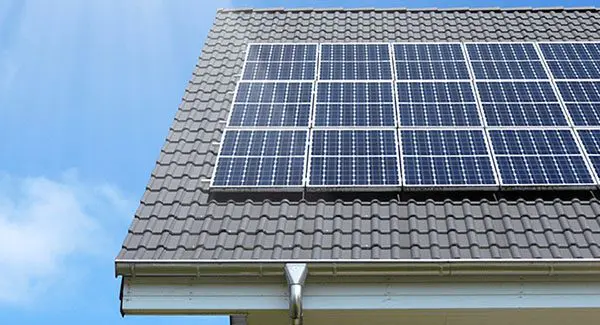- Community Associations
- Illinois
Homeowners are “going green” with small-scale sustainability efforts in an effort to reduce their energy footprint. Wind turbine, rain water collection, and composting systems have become viable renewable, clean energy options. In particular, residential solar technology has gained popularity due to accessible technology, streamlined equipment, and decreased installation costs.
Simultaneously, associations have evaluated how solar technology impacts their unique communities. Factors including placement, operation, maintenance, and property values underline why Boards should formulate policies to address green initiatives proposed by unit owners.
Below are six things to consider when discussing solar panel polices in condominium, homeowner, and townhome associations.
1. Location
While it may appear obvious that solar panels should face the sun, decisive location factors include installation, community standards, and visual appeal. For example, associations must account for roof-mounted solar panel visibility on corner lots and units located on side streets. Separately, fence lines and landscaping are relevant conditions in ground-mounted solar panels.
2. Architectural Requirements
Solar panel design variations include materials, thickness, color, and mounting racks that involve electrical components and roof structure concerns. While Board members are not experts regarding solar panel systems, an association’s energy policy statement should generally address architectural requirements. For example, property owners should provide confirmation of local government permits and contractor licensing.
3. Maintenance
While industry standards and mechanical certifications are best left to discussions with technical experts, an association must account for solar panel maintenance. Upkeep considerations include paint deterioration, peeling, cracking, and discoloration. Solar systems are built to withstand weather conditions in all types of climates, they must also be clear of snow, animals, and other debris for optimal performance.
4. State and Local Regulations
State specific solar access legislation and local government ordinances also need to be taken into consideration. For example, the Illinois Homeowners’ Solar Rights Act (765 ILCS 165/10) was adopted in 2011 and provides a number of restrictions, including:
- solar energy system installations on a building that is less than 30 feet in height subject to a homeowners’ association; and
- the specific location where a solar energy system may be installed on the roof within an orientation to the south or within 45 degrees east or west of due south provided that the determination does not impair the effective operation of the solar energy system.
5. Adoption
Most associations are governed by rules that prohibit an owner from installing anything on the exterior of the building or in common areas without association approval. However, any energy policy addressing solar panels must be part of the association’s Declaration.
6. Disclosure
The Illinois Homeowners’ Solar Rights Act (765 ILCS 165/10) requires an association to disclose its energy policy statement within 120 days of a request by an association member. If the association has not adopted an energy policy addressing solar panels, the clock starts running on the mandatory time period for the Board to adopt a policy once an owner makes an inquiry.
If your association is interested in adopting an energy policy statement to address solar panels in your common interest community, do not hesitate to contact our law firm.
Since 1983, KSN has been a legal resource for condominium, homeowner, and townhome associations. Additionally, we represent clients in real estate transactions, collections, landlord/tenant issues, and property tax appeals. We represent thousands of clients and community associations throughout the US with offices in several states including Florida, Illinois, Indiana, and Wisconsin. Please call 855-537-0500 or visit www.ksnlaw.com.
—
This article is made available by the lawyer or law firm publisher for educational purposes only as well as to give you general information and a general understanding of the law, not to provide specific legal advice. By reading this article you understand that there is no attorney client relationship between you and the article author. This article should not be used as a substitute for competent legal advice from a licensed professional attorney in your state. © 2019 Kovitz Shifrin Nesbit, A Professional Corporation.



